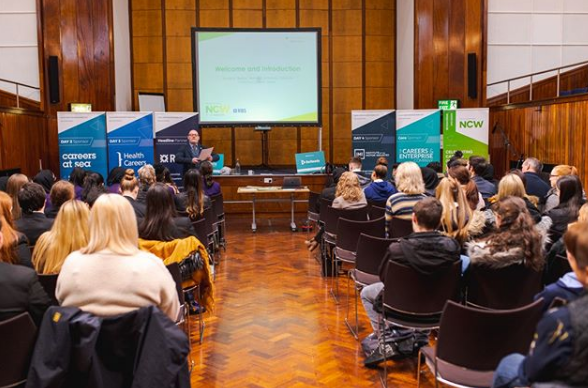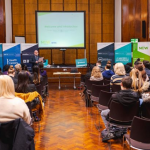As National Careers Week (NCW) in the U.K. finishes its eighth year, it’s time to reflect.
Many have asked me over the years, “How do you and the NCW team deliver such a big-impact week with so little funding?”
It is true that NCW has grown from initially working with a handful of participating schools to being the biggest week for careers in the U.K. To understand the ”how,” it’s important to consider the ”why.”
A week with heart
A passion for wanting to help young people get the right chances in education, training and employment drives the work of many in the sector. There is an army of careers professionals, teachers, school and college leaders and employers who rally behind this objective. For many of us, it is our reason for being, a driving force that is fuelled by successful conversations and interventions.
We love what we do.
When so many passionate people are given a focus, a time and a place to shine and get creative to inspire young learners, there can only be one outcome: a relentlessly successful explosion of career development. The enthusiasm and commitment of those who care about career development have helped put a grassroots initiative on the country’s radar.
Writing my weekly reminders and smiling as I reflect on all the wonderful opportunities we’ve provided our secondary students this week through Tenby Careers Week and well-being #NCW2019 @CareersWeek @NationalCareers #wellbeing @EnterpriseSBox pic.twitter.com/st2SMTmqRV
— Liz Cloke (@misscloke) March 23, 2019
That’s the simple answer.
The slightly longer version of the answer involves a management team of brilliant colleagues; the building of an NCW ambassadorial network, which includes professionals who inspire me every day with their passion and commitment; the support of sponsorship organizations that believe in and share our goals; and recent support in terms of government recognition.
How we got here
NCW started as the ‘SaveCareers’ campaign on Twitter in 2011 in response to government cuts to youth services in the U.K. The cuts signalled the demise of our Connexions service, a national program that had provided a professional careers adviser in every school. It was the end of an era and the start of a scary new world for careers education.
With hundreds of stakeholders – from careers professionals to parents and employers – we created a virtual group of likeminded people sharing similar concerns whilst aspiring to make things better.
Over the years, we have built on a bank of careers education and information resources to help careers professionals organize activities and events with clients and students, from primary school to graduates.
The enormous brand awareness we have been able to build through social media is undoubtedly a key to our success; without the incredible reach across platforms like Twitter, NCW wouldn’t have grown, been able to share best practices or had the profile to attract the sponsorship we do today. (Much of the social media marketing success comes down to our guru in this space, fellow director Stephen Logan, who juggles this position with a full-time job as assistant principal at a secondary school – a great example of our management team’s relentless commitment and passion!)
The success of NCW didn’t happen overnight. It has taken eight years of relentless lobbying, marketing, raising awareness, pitching to sponsors, growing resources and being disrupters in a fairly conservative arena.
The next step: a global careers week?
If a few of us in the U.K. can accomplish what we have, imagine what could be achieved in Canada and beyond. Could we collaborate and include other countries? Could there be a global careers week?
Anything is possible when passion and commitment come together under the same flag.
As I write this blog from just outside of Cambridge in the U.K., I am excited by the thought of people all over Canada reading about our work at NCW and saying ‘I can do more’ and ‘we can do that’ – this is how it starts.
All of the careers resources on our website for free download are mapped against the eight Gatsby benchmarks. All are there to be used, shared and embedded into your own resources, lesson plans and lecture materials.
If you would like to carry on the discussion about NCW, feel free to comment below, email me or find me on Twitter (where I am found far too often!).





Nick, we don’t have anything like this in the US! Or at least I don’t know anyone who is doing a NCW or career week type of event. If you know of anyone, would love to hear it!